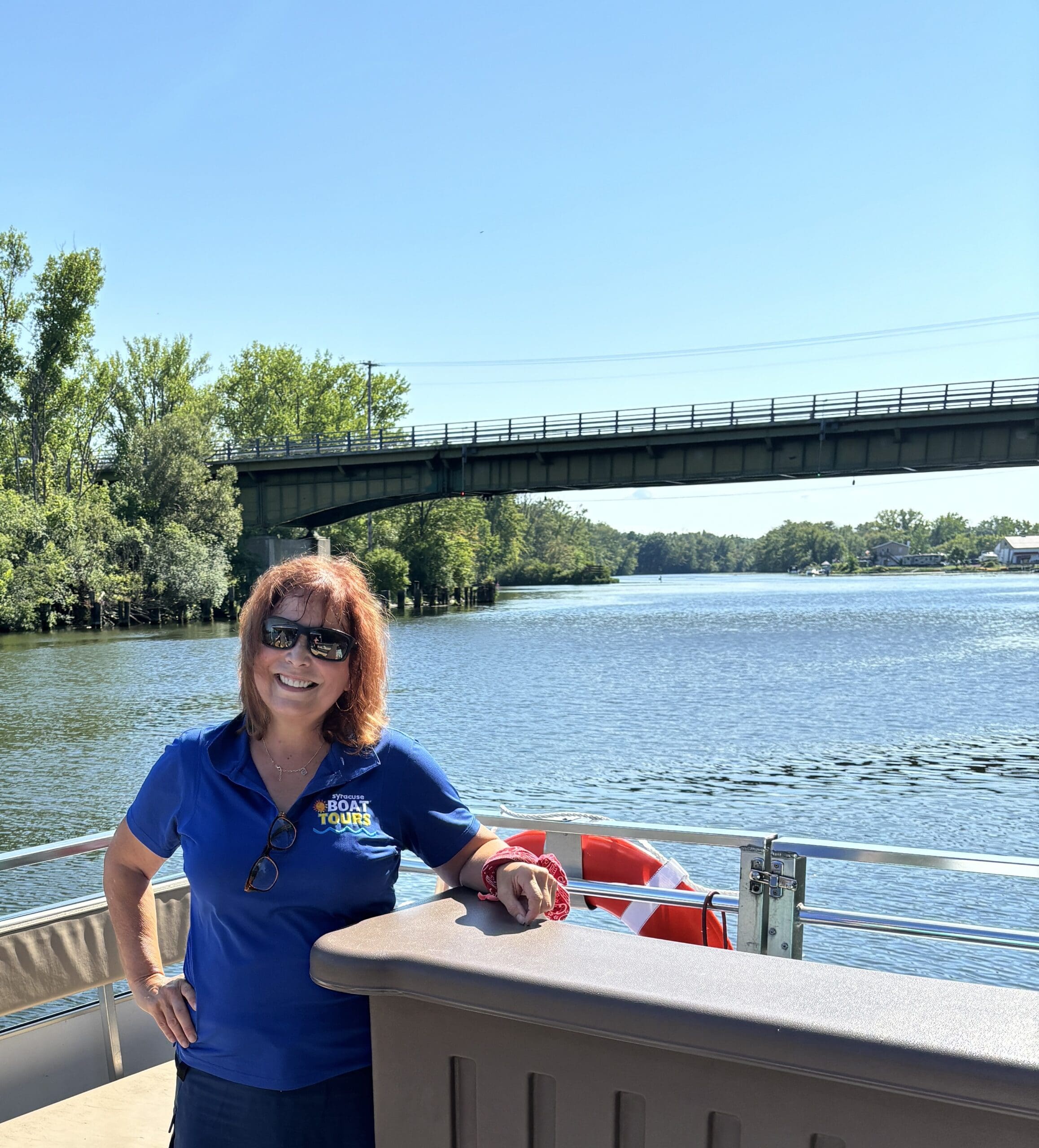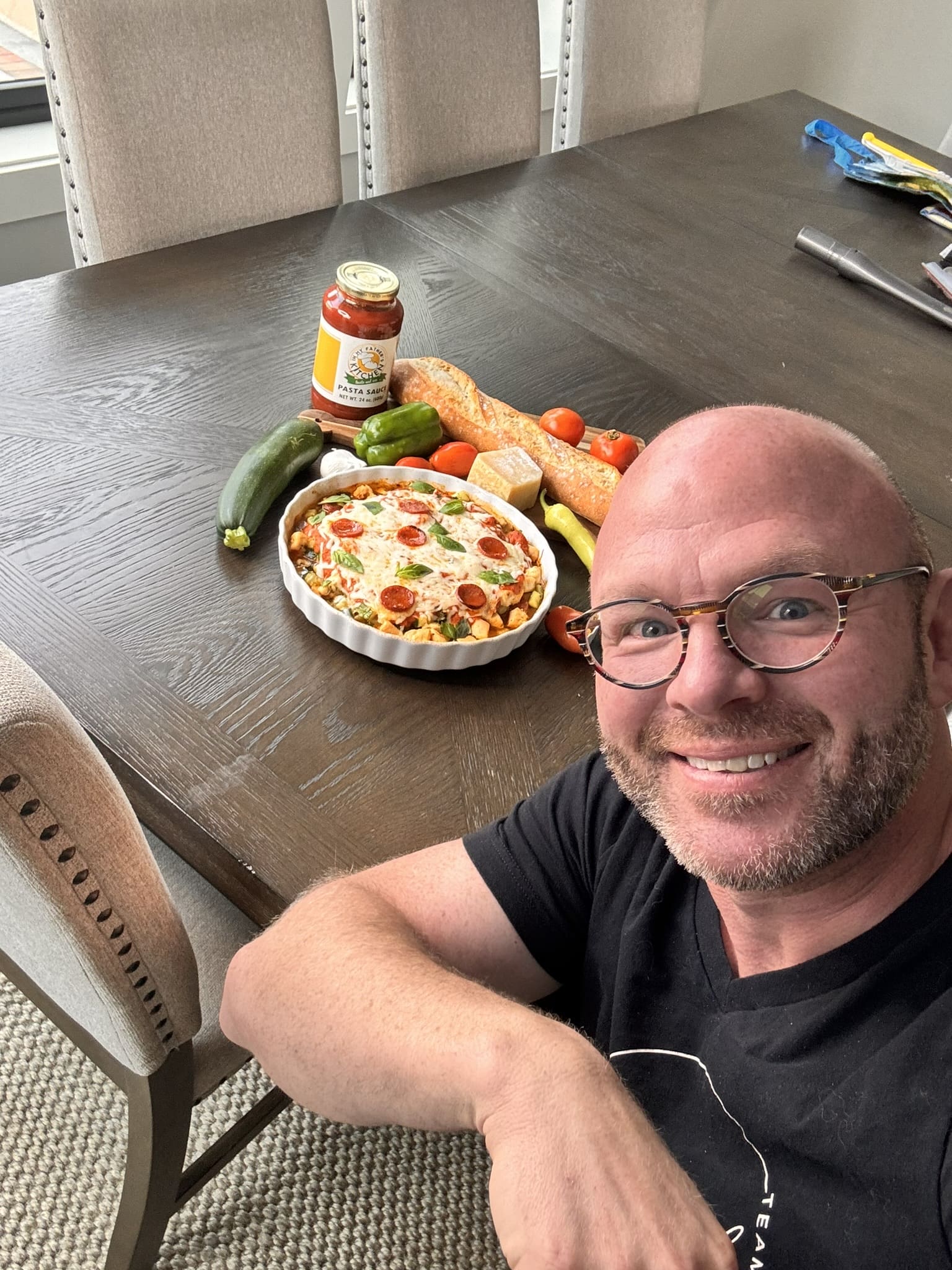The Revolutionary Power of History
By Lorna Oppedisano | Photography by Alice G. Patterson
Teacher, activist, leading feminist studies expert and Matilda Joslyn Gage Foundation founder and executive director Sally Roesch Wagner has some sage advice.
“Do not fall in love with a dead woman,” she said with a thoughtful chuckle. “You’ll end up stalking her for the rest of your life. Yeah, OK, I could be considered a serious scholar, or I could be considered somebody who has a serious case of OCD.”
There’s no doubt the former suggestion is true. Sally holds one of the first-awarded doctorates in the nation to focus on women’s studies, from the University of California at Santa Cruz. She helped pioneer one of the country’s first college women’s studies programs, at California State University at Sacramento. She taught her first women’s studies class in 1970, and is still going strong, currently an adjunct professor at Syracuse University.
She’s devoted her life to telling the largely untold story of Matilda Joslyn Gage, an endeavor that includes published works, classes and performances, and has culminated in a foundation and award-winning museum.
When she first heard a snippet of Matilda’s tale, her interest was piqued. She had been headed into the field of psychology; if not for that fated introduction to Matilda, Sally would probably be a psychologist, she postulated.
“Be careful,” she warned with a smile. “One moment can change the course of your entire life.”
Matilda’s early influence
Sally grew up in Aberdeen, S.D. Almost everyone in the town was white, creating an incredibly homogenous world that inspired Sally’s longing for diversity, she remembered.
“It’s not like a tolerance. It’s not like an acceptance. It’s a raging hunger,” Sally said.
In her early teenage years, she began to rebel against her upbringing. The time had come for her to join her parents’ Congregational church, but she wanted to see what else the world had to offer. So she went to the local library, and began to look through books on other philosophies.
At the age of 14, Sally decided to be a freethinker.
Years later, after she’d started researching Matilda’s life, Sally visited her hometown and stopped by that section of the library, only to discover she’d been touched by Matilda’s influence much earlier than she’d thought.
Sally walked over to the section, dusted off the books and pulled one off the shelf. The inscription read: “To TC, from Mother.” She looked at another. It read: “MJG.”
Matilda had ties to Aberdeen during the suffrage campaign and her son, Thomas Clarkson — “TC” — had donated his collection of books on theology to the Alexander Mitchell Public Library, right in Sally’s hometown.
“I became a freethinker — like Matilda Joslyn Gage — at the age of 14, reading books that she had given to her son, knowing nothing about Matilda Joslyn Gage,” she said, humming “The Twilight Zone” theme song. “Isn’t it crazy?”
Meeting Matilda
In July 1973, Sally was on track to earn a master’s degree in psychology, and teaching classes in women’s studies. A portion of that curriculum was women’s history. To say Sally wasn’t fond of the section would be an understatement.
“I didn’t care about history at all,” she admitted. “In fact, I hated it.”
That changed with Matilda. A friend had told Sally the suffragist was connected to Aberdeen. Sally drew a connection: her mother had a friend named Matilda Gage. She called her mother to inquire, and found she was friends with Matilda Joslyn Gage’s granddaughter, also named Matilda.
Searching for an anecdote to liven up the history section of women’s studies, Sally arranged a meeting with Matilda. Matilda welcomed Sally into the house, pointing out photos and furniture of particular significance. Then, they entered the dining room, and Sally was met with stacks upon stacks of Matilda Joslyn Gage’s letters and papers.
Here lay all this information about a woman who had cofounded the National Woman Suffrage Association with Susan B. Anthony and Elizabeth Cady Stanton; whose Fayetteville home was a stop on the Underground Railroad; who spoke out during the 1870s against unjust treatment of Native Americans and was adopted into the Wolf Clan of the Mohawk Nation; and who, in 1890, formed the Woman’s National Liberal Union to fight for separation of church and state.
The list of Matilda’s feats continues, and yet her name wasn’t widely known in feminist studies.
“OK, there’s a different story here,” Sally thought, and vowed to dig deeper to learn this woman’s history.
After all, Sally was still fighting the same war Matilda had waged a century before, and still faced some of the same issues. In discussing and addressing those problems, Sally and her colleagues created the first minor in women’s studies in the country.
“[The program] grew out of the women’s movement,” Sally explained. “It didn’t grow out of the academy.”
She and other women discussed the discrimination they encountered — being told they were “absolutely brilliant” because they “thought like men”; having to maneuver to avoid being grabbed; the shame that accompanied conversations about rape — and they came to a conclusion.
“That’s when we realized, ‘We’re not messed up. We’re messed over,’” Sally said. “And women’s studies grew out of that.”
After Sally discovered Matilda, she completed her master’s degree in psychology, and searched for a women’s studies program at the doctoral level. She came up short.
Because women’s studies is intrinsically interdisciplinary, she entered an interdisciplinary program and earned a doctorate in the history of consciousness with a concentration in women’s studies.
Her dissertation was entitled: “That Word is Liberty: a Biography of Matilda Joslyn Gage.” Sally’s was one of the first doctorates in the country awarded for work in women’s studies.
Delving into Matilda’s history, Sally’s loathing of the subject lessened.
“I just wanted to learn how to talk to this dead woman,” she joked.
Having found the “revolutionary power of history,” Sally became a self-proclaimed “born-again historian.” The history she’d been taught covered “great men, great wars, great dates”; but it wasn’t one single person who changed history, she explained.
“Abraham Lincoln didn’t free the slaves,” Sally said. “Abolitionists did.”
That knowledge influenced Sally’s continuation of Matilda’s efforts. For instance, Matilda fought for equal pay, a battle still waging on today. If women received 50 cents to every dollar a man received in 1850, and that figure has grown to 79 cents now, Sally posed a question: how many years until it’s an even match?
“The answer is you don’t have to wait 150 years. You can get it tomorrow if you demand,” Sally said. “So I think that’s the power of history, to transform our work and our vision and what we do. We can change the world.”
The foundation’s founding
Sally first laid eyes on Matilda Joslyn Gage’s home at 210 E. Genesee St. in Fayetteville in 1976. It was not a sight or a site to behold. The house was rental property, and had fallen into disrepair.
While Sally was teaching around the country, publishing articles and books on Matilda’s work and performing as Matilda, she would make her way back to Central New York often to visit the Gage home.
Then, years later in 1997, Sally found herself teaching at Syracuse University for two semesters as the Jeanne K. Watson Women’s Studies Distinguished Visiting Professor in the Humanities. She held meetings with people locally to survey interest in purchasing the property and somehow honoring Matilda. While there was some interest, someone told Sally, “It’s not going to happen unless you come back and do it.”
So, in 1998, she moved from a five-bedroom house in Aberdeen, where she’d cared for her father until he passed away, into a one-bedroom apartment in the Gage home.
With the help of friends and colleagues she’d made during years of visits to the area, she formed a board of directors. Then, with the assistance from lieutenant governor Mary Anne Krupsak, the foundation was incorporated. The team spent about a year solidifying its vision and mission, and the foundation became a tax-exempt nonprofit organization.
The next 10 years were spent fundraising $1 million to purchase and restore the house. The Matilda Joslyn Gage Center opened in 2010.
Rather than telling the story of the house as it was — where Matilda slept, ate and worked — the center has dedicated each room in the home to a cause Matilda invested in, including a Haudenosaunee room, religious freedom room and an Underground Railroad room.
“We decided that it was a house of ideas,” Sally said.
The mission
During the Civil War, Matilda gave a flag presentation speech to the Fayetteville 122 Regimen.
“She sent them off to war with their flag, which the women of Fayetteville had made. And she said, ‘Until there is absolute equality for every group, rich and poor, men and women, native born and immigrant’ — she names everybody — ‘until there is absolute equality, there will be no permanent peace,’” Sally said. She offered a question. “And so the challenge of that is: is the Civil War over yet?”
That absolute equality is the mission of the foundation and center, achieved through education and the use of dialogue.
In the past, the foundation received a grant to host a dialogue on reproductive choice. They brought together people from different backgrounds who held different beliefs. One group had representatives from both Planned Parenthood and the Catholic Diocese. At the end of the session, they reached a point of trust at which they could share personal stories.
“So I think it’s important — especially now when the country is so polarized — to find ways that we can bring people together to talk about the issues that divide us and the issues that are really relevant,” Sally said.
The foundation was recently awarded another grant that will fund a dialogue and exhibits on native issues of sovereignty, both at the center and at the Women’s Rights National Historical Park.
The foundation’s focus this year — on the centennial celebration of women gaining the right to vote in our state — is the origin of women’s rights in the area, dating back much further than the age of suffragists.
Long before Matilda’s fight for equality as a woman in the 1800s, the Haudenosaunee women had more rights than some women do today, Sally explained.
“So that’s the story that we want to tell — that the story of women voting in New York state does not begin in 1917. It begins before Columbus,” she said.
History in the making
Not many people can say they’ve devoted their life to telling someone else’s story.
When Sally discovered Matilda Joslyn Gage and what the suffragist stood for — not just women’s rights, but issues like ending sex trafficking, sexual abuse of children by priests and violence against women — she knew she had to tell her story.
“History isn’t what happened,” Sally said. “It’s who tells the story.”
If Matilda hadn’t grabbed her, Sally would be a psychologist now. Reflecting back on the last few decades, Sally remarked that it’s been an honor to hang out with Matilda.
“She’s got blemishes. She’s got problems. But I have a lot of respect for Gage,” Sally said, adding that Matilda Joslyn Gage really has something to give us today. “She constantly pushes me forward. She constantly challenges me through the integrity of her actions, but also the wisdom of her words.” SWM
To learn more about Sally Roesch Wagner, visit sallyroeschwagner.com.
We only told a short portion of Matilda Joslyn Gage’s story here. For more, visit The Matilda Joslyn Gage Center at 210 E. Genesee St. in Fayetteville. The center is open 10 a.m. to 3 p.m. Tuesdays, Thursdays and Fridays. Visit matildajoslyngage.org for more.





